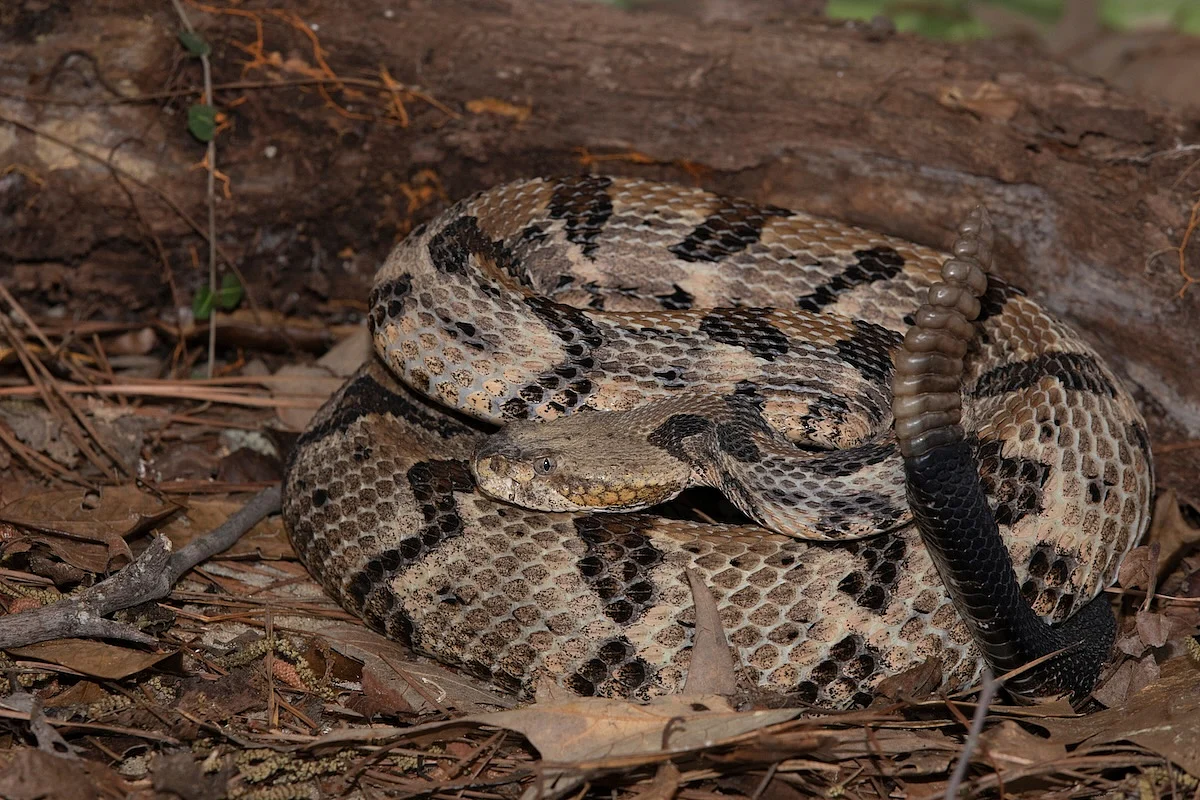Fatal Snakebite at Tennessee Park Highlights Risks in the Wild
FRIDAY, Aug. 22, 2025 — Authorities in Tennessee reported a rare and tragic death after a hiker was bitten by a rattlesnake.
Fatal snakebites are extremely uncommon in the United States, with a nationwide average of about five deaths annually, according to the U.S. National Institute for Occupational Safety and Health.
The incident occurred on Aug. 8 in Savage Gulf State Park in Gruetli-Laager, Tennessee, a scenic area with some 60 miles of hiking trails that are home to various snake species, The New York Times reports.
According to a witness, the man, who has not been publicly identified, picked up what is believed to be a timber rattlesnake and was bitten on his hand. Despite receiving immediate CPR from emergency medical workers who reached him about a half-mile along the trail, he later died at a hospital, according to the report.
Why the hiker handled the snake remains unknown.
Experts suspect the man's death was not due to the effects of the snake's venom, but rather to a severe allergic reaction.
"Some people just may be plain allergic to snake venom," said William Sutton, an assistant professor of agricultural and environmental sciences at Tennessee State University in Nashville, who studies snakes.
He noted that an allergic reaction to the venom could lead to anaphylaxis, a life-threatening condition that can cause the airways to narrow and blood pressure to drop.
Timber rattlesnakes are usually gray, with a black, orange, brown, pink or yellow stripe down their back, and black coloring near their rattle. Their rattle shakes and makes a distinct warning sound when they perceive a threat.
However, experts stress that snakes are generally not looking for a fight.
"Generally, if you don’t bother them, they won’t bother you," Sutton told The Times. "They don’t really want to have to bite you." Snakes would rather save their venom for prey that they can eat but perceive humans as a threat.
Found mostly along the eastern half of the U.S., timber rattlers can grow 2 to 5 feet or more in length.
Authorities and experts urge hikers to be mindful of their surroundings.
"If you do come across a snake, give it a wide berth," Sutton advised, emphasizing the importance of always keeping an eye on the hiking trail and its edges.
Snake bites can be treated. If bitten by a snake, the U.S. Centers for Disease Control and Prevention recommends that people:
-
Seek emergency care as soon as possible to start antivenom treatment, if needed. Have someone else drive.
-
Try to photograph the snake from a safe distance, which may help providers plan a course of treatment.
-
Keep calm.
-
Apply first aid while waiting for someone to take them to the hospital:
-
Lie or sit down with the bite in a neutral position of comfort.
-
Remove rings and watches before swelling starts.
-
Wash the area with soap and water.
-
Cover the wound with a clean, dry dressing.
-
Mark the leading edge of tenderness/swelling on the skin and use a pen to write the time alongside it.
-
Sources
- The New York Times, Aug. 16, 2025
Disclaimer: Statistical data in medical articles provide general trends and do not pertain to individuals. Individual factors can vary greatly. Always seek personalized medical advice for individual healthcare decisions.
© 2025 HealthDay. All rights reserved.
Read this next
What to Know About Anaphylaxis: Symptoms, Triggers & Treatment
THURSDAY, Sept. 11, 2025 — When people hear about anaphylaxis, they often associate the severe allergic reaction with food allergies. And while food allergies can cause...
How To Help Your Back-To-School Kid With Their Allergies
THURSDAY, Sept. 11, 2025 — Back-to-school is an exciting time for kids and parents, but it also marks the beginning of fall allergies as well as the cold and flu season. So...
Taylor Fresh Foods Issues Recall of Salad Kits Sold at Kroger, Walmart
WEDNESDAY, Sept. 3, 2025 — Taylor Fresh Foods has issued a voluntary recall of its Honey Balsamic Salad Kit after discovering the dressing packets contained undeclared...
More news resources
- FDA Medwatch Drug Alerts
- Daily MedNews
- News for Health Professionals
- New Drug Approvals
- New Drug Applications
- Drug Shortages
- Clinical Trial Results
- Generic Drug Approvals
Subscribe to our newsletter
Whatever your topic of interest, subscribe to our newsletters to get the best of Drugs.com in your inbox.


